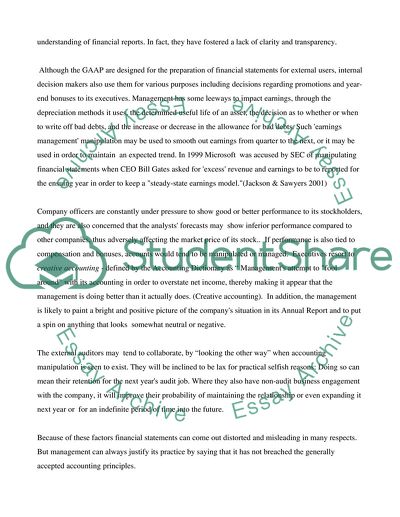Cite this document
(Financial Statements: Their Reliability and Lessons from the Financial Research Paper, n.d.)
Financial Statements: Their Reliability and Lessons from the Financial Research Paper. Retrieved from https://studentshare.org/finance-accounting/1559979-managerial-accounting
Financial Statements: Their Reliability and Lessons from the Financial Research Paper. Retrieved from https://studentshare.org/finance-accounting/1559979-managerial-accounting
(Financial Statements: Their Reliability and Lessons from the Financial Research Paper)
Financial Statements: Their Reliability and Lessons from the Financial Research Paper. https://studentshare.org/finance-accounting/1559979-managerial-accounting.
Financial Statements: Their Reliability and Lessons from the Financial Research Paper. https://studentshare.org/finance-accounting/1559979-managerial-accounting.
“Financial Statements: Their Reliability and Lessons from the Financial Research Paper”. https://studentshare.org/finance-accounting/1559979-managerial-accounting.


